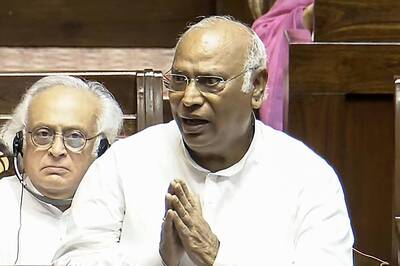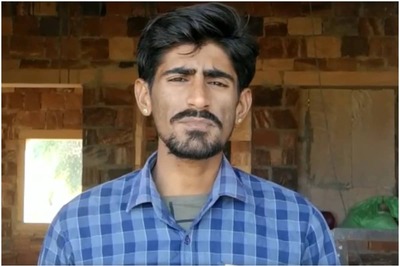
views
Dhaka: The failure to sign a deal on Teesta water sharing on Tuesday cast a shadow over the two-day visit of Prime Minister Manmohan Singh in Dhaka as Bangladesh summoned the Indian High Commissioner and bluntly conveyed its unhappiness on the issue.
Bangladesh Foreign Secretary Mijarul Qayes called Indian envoy Rajeev Mitter to the Foreign Ministry on Tuesday morning and sought a clarification on media reports about India deciding "at the last minute" not to sign the accord, sources said.
Mitter is understood to have told Qayes that the "internal discussions" on Teesta water-sharing in India were yet to be completed and New Delhi was not in a position now to ink the pact. He is understood to have expressed regret over the Teesta deal not coming through.
Mitter, however, conveyed to Qayes that as soon as the internal discussions were over in India, the deal would be signed, said the sources.
Qayes, on his part, conveyed to the Indian envoy that the "last-minute" scrapping of the move to sign the Teesta deal was "not acceptable".
A spokesman of Bangladesh Foreign Ministry said Qayes conveyed to Mitter that India's decision not to ink the "crucial and long-awaited" Teesta pact is "very frustrating".
Bangladesh, for which the Teesta pact would have been the most vital event of Singh's two-day visit, also reportedly threatened to retaliate by not signing the transit accord with India.
Private television channels quoting "sources concerned" ran scrolls saying Dhaka would also postpone a crucial deal on the cross-border transit that would have allowed India to use Bangladesh's southern seaports of Chittagong and Mongla.
The meeting between Qayes and Mitter took place shortly before Singh arrived in Dhaka on his maiden bilateral visit during which the two sides are to sign several deals on a range of sectors, including border demarcation and exchange of enclaves.
Earlier, highly-placed Indian sources made it clear that India and and Bangladesh will not sign a deal on sharing of waters of Teesta river during Singh's visit to Dhaka in the wake of strong reservations to the move voiced by West Bengal Chief Minister Mamata Banerjee.
"The deal on Teesta will not be signed in this visit. Unless we find something which is acceptable to everybody, there is no point signing the agreement", the sources said on Tuesday morning.
They said "there is no point of having an agreement just for the sake of agreement and the Centre has to engage the West Bengal government more intensively and sit with the Bangladesh government to thrash out a deal".
"We need more time and need to sit with both West Bengal government and Bangladesh to arrive at an acceptable agreement", said the sources.
Asked about reports that Mamata had objected to giving Bangladesh 33,000 cusecs of water, as mentioned in the final draft of the interim treaty for Teesta water-sharing instead of 25,000 cusecs in the initial draft, the sources made it clear that no figure was mentioned in any draft.
Mamata opted out of the visit to Bangladesh with Singh as she was stated to be upset with the final draft of the Teesta water-sharing treaty, creating a diplomatic embarrassment for the Prime Minister on his maiden bilateral visit to Bangladesh.
The sources said there was no question of having arrived at any agreed quantum of water-sharing between India and Bangladesh because the two countries have not undertaken any joint measurement of the availability of water in Teesta.
While India and Bangladesh had separate figures about the water availability, no joint survey was done so that they could decide on the quantum of sharing the waters, particularly during lean season from October to April, the sources said.
The idea behind an interim accord was that a joint survey is undertaken and criteria finalised about availability of water in catchment areas of Teesta and the kind of alluvial soil downstream of the river before going for a permanent agreement.
The sources said the Teesta agreement should be carefully crafted and this is acknowledged even by Bangladesh because of its ramifications for sharing of waters of other rivers flowing through the two countries.



















Comments
0 comment